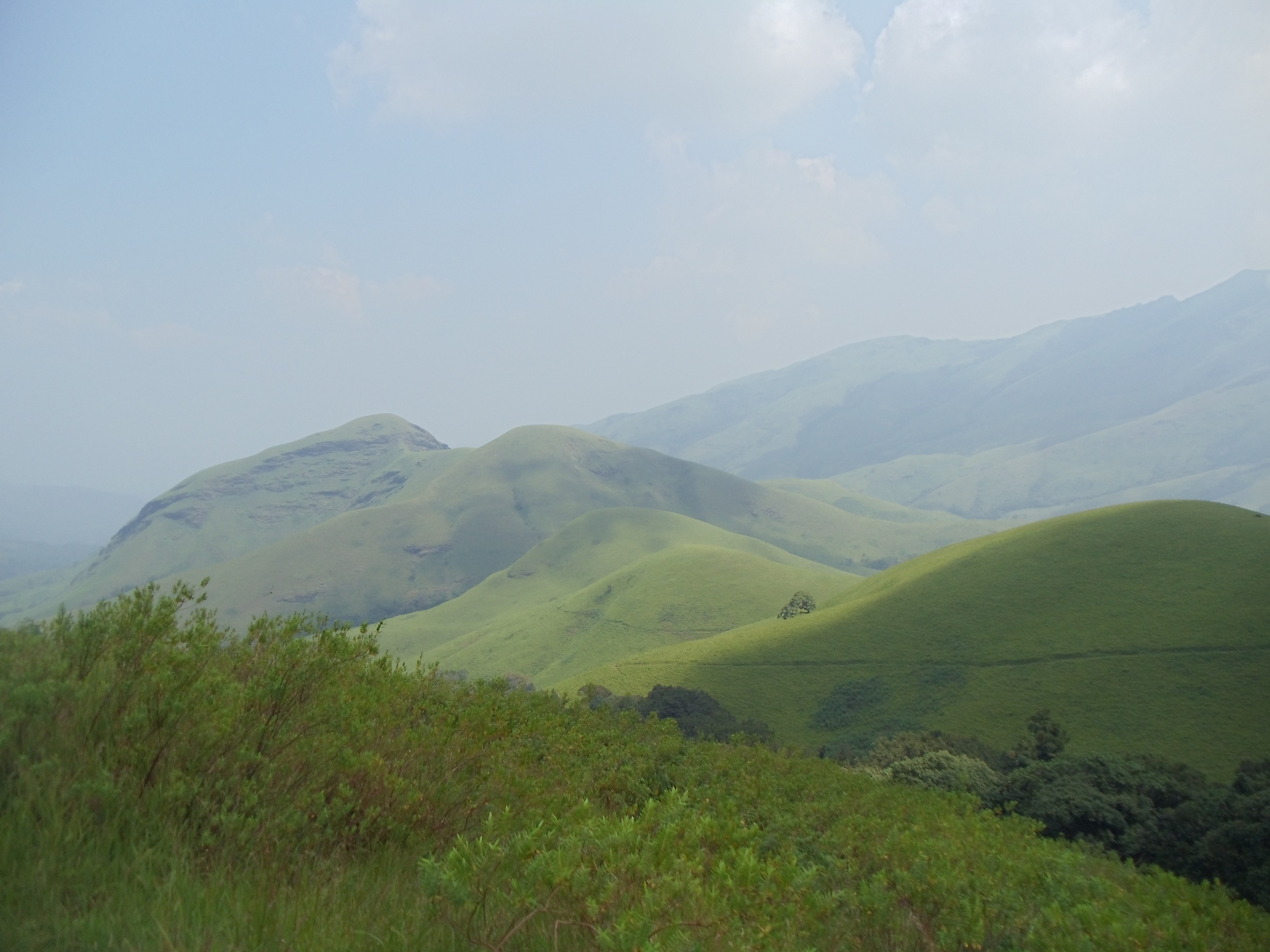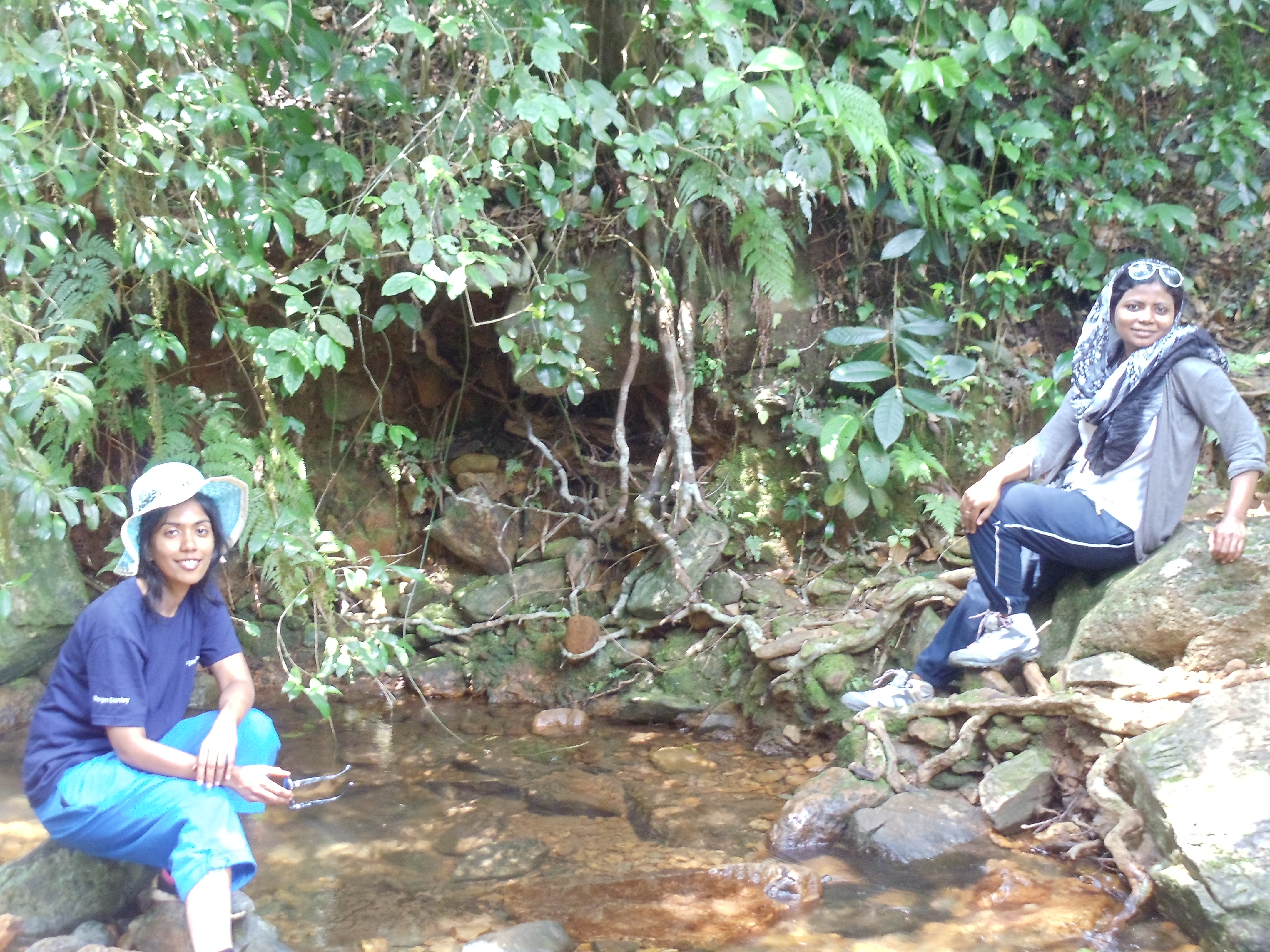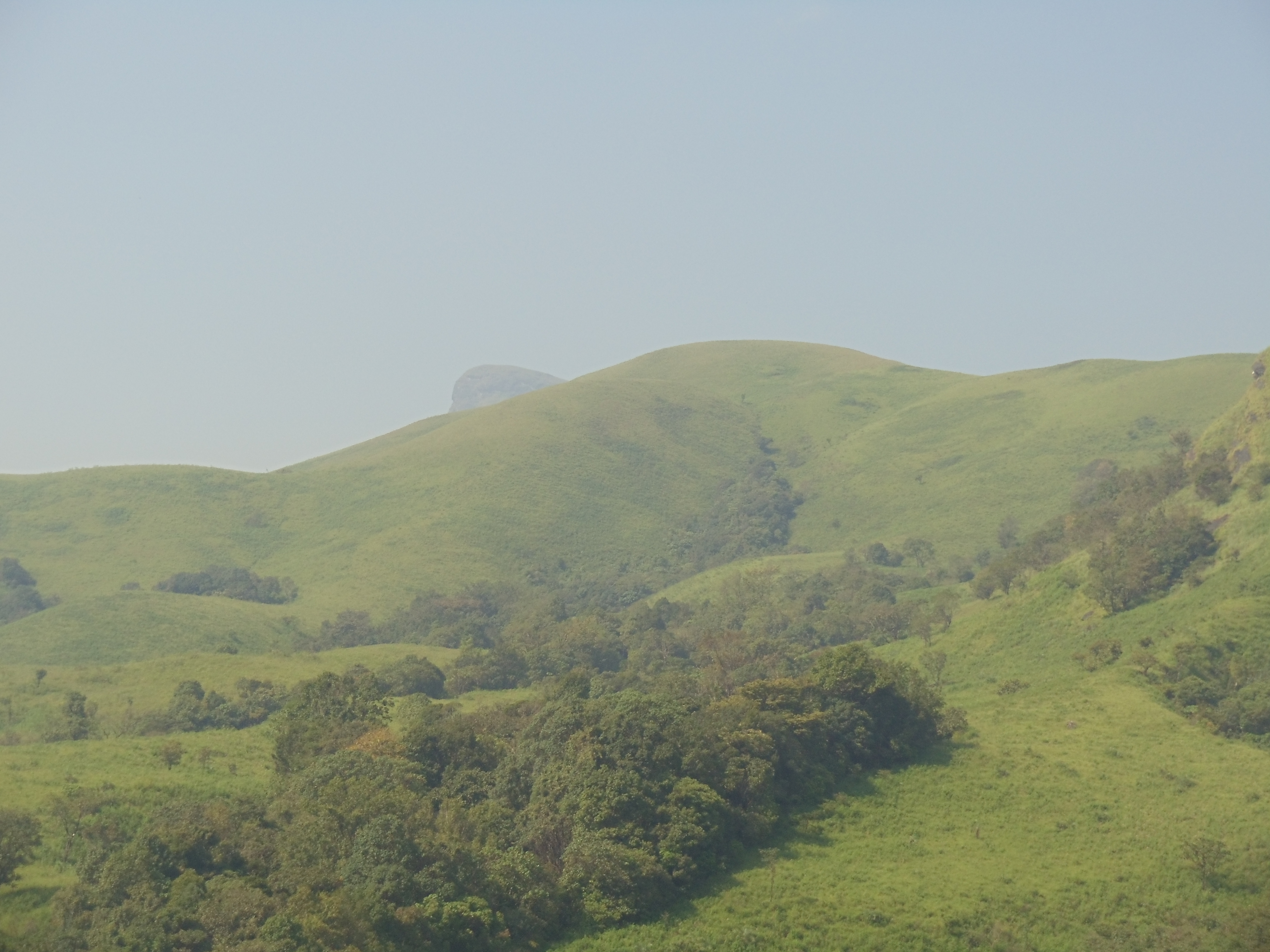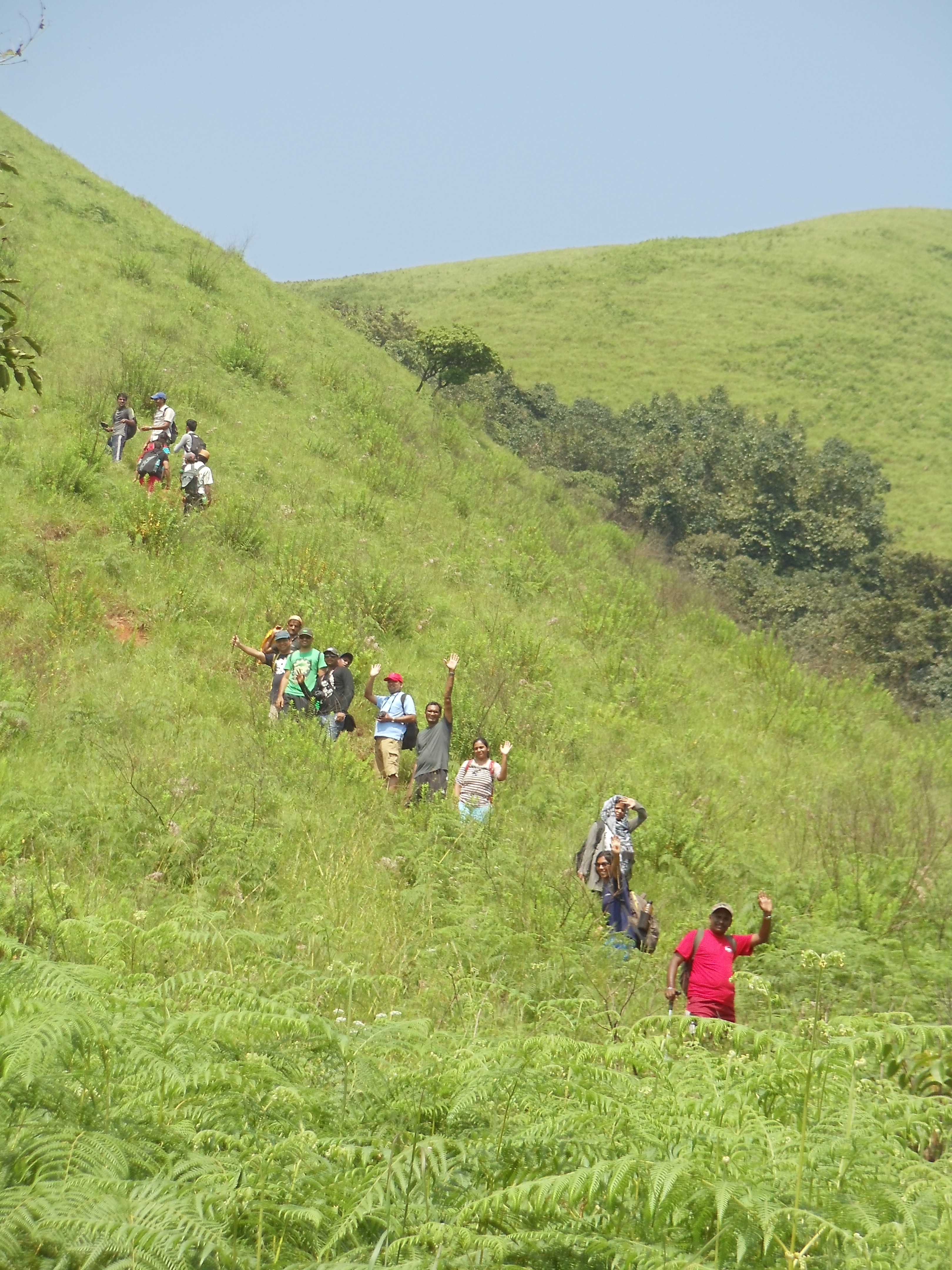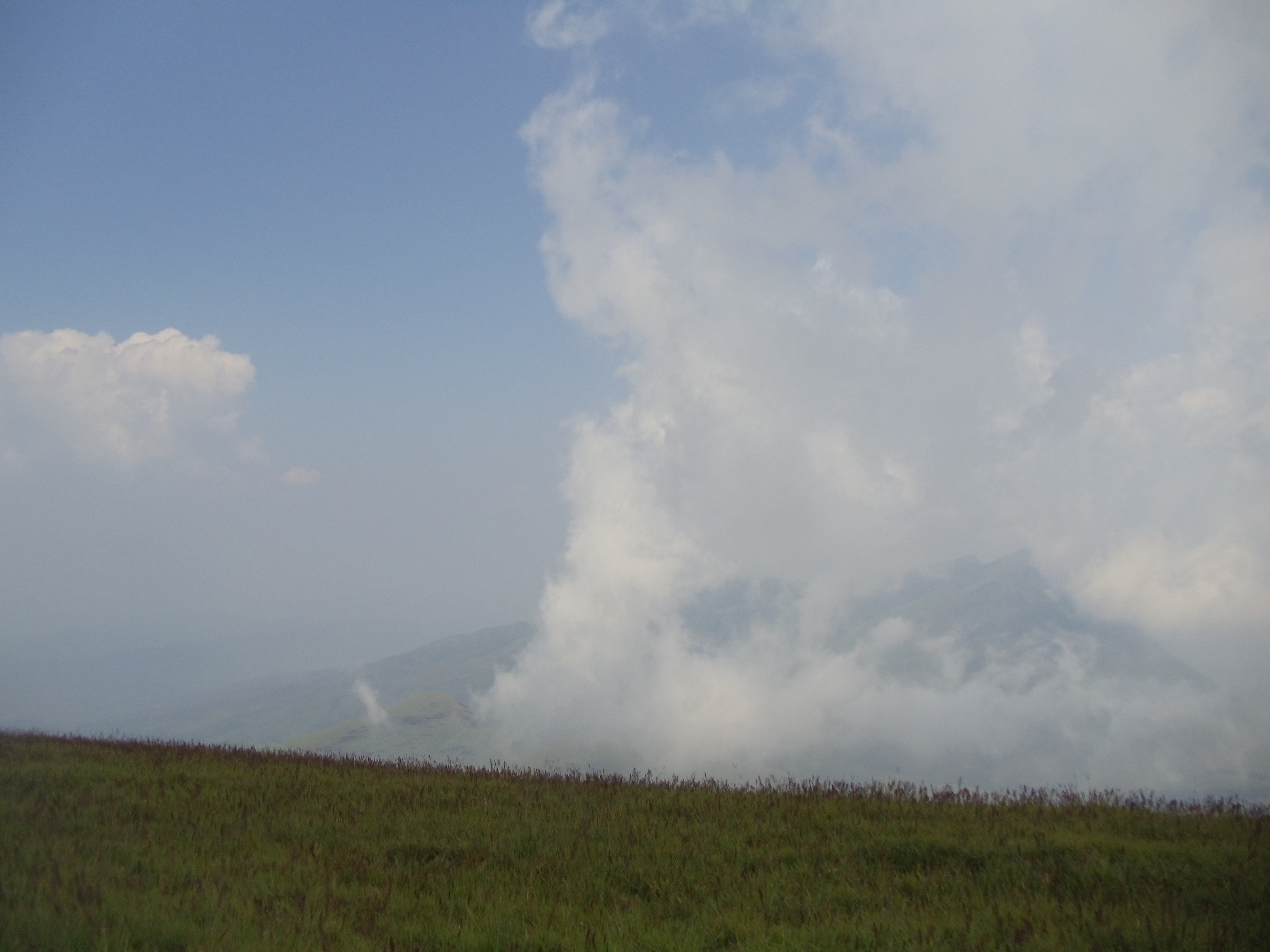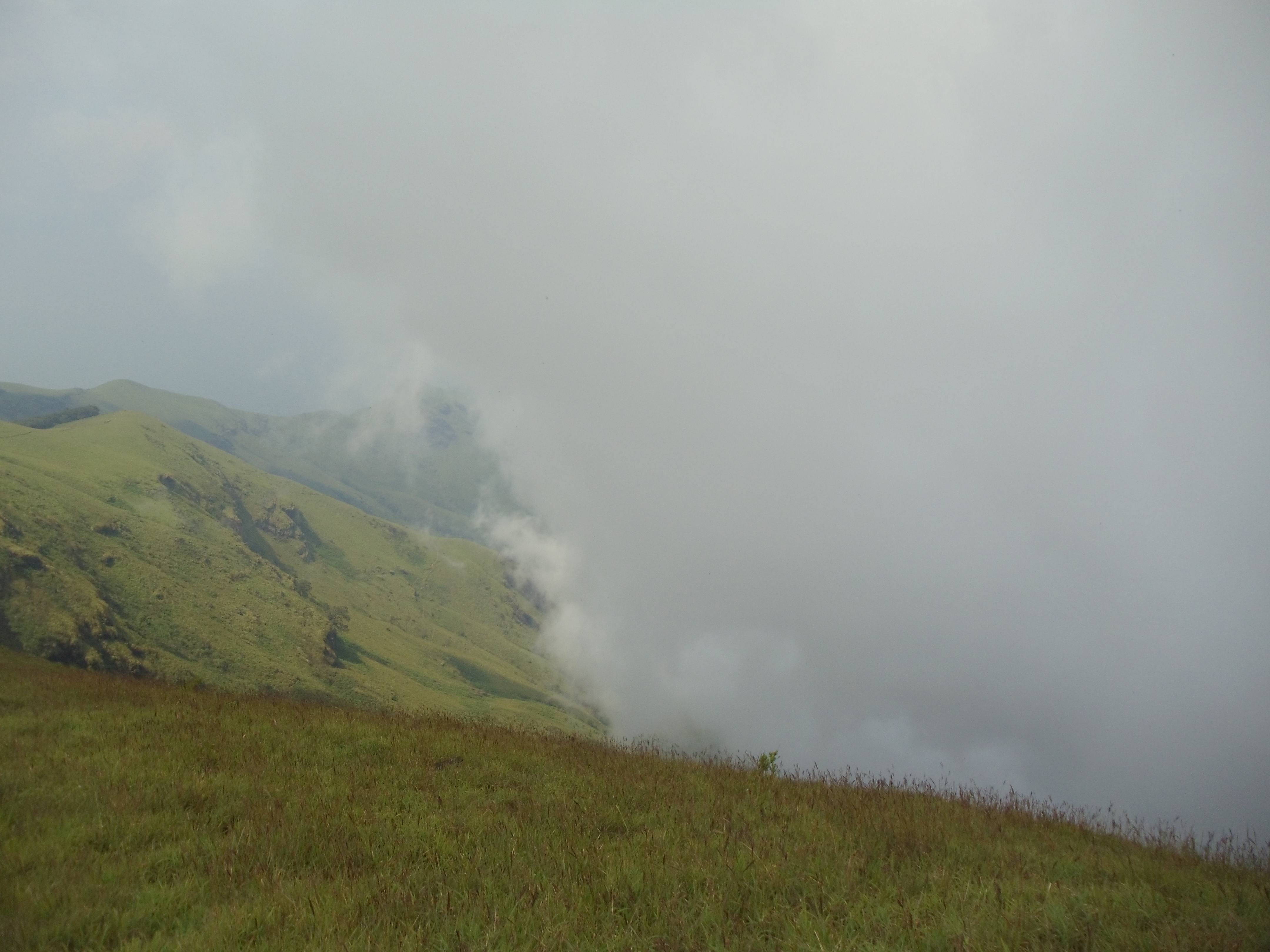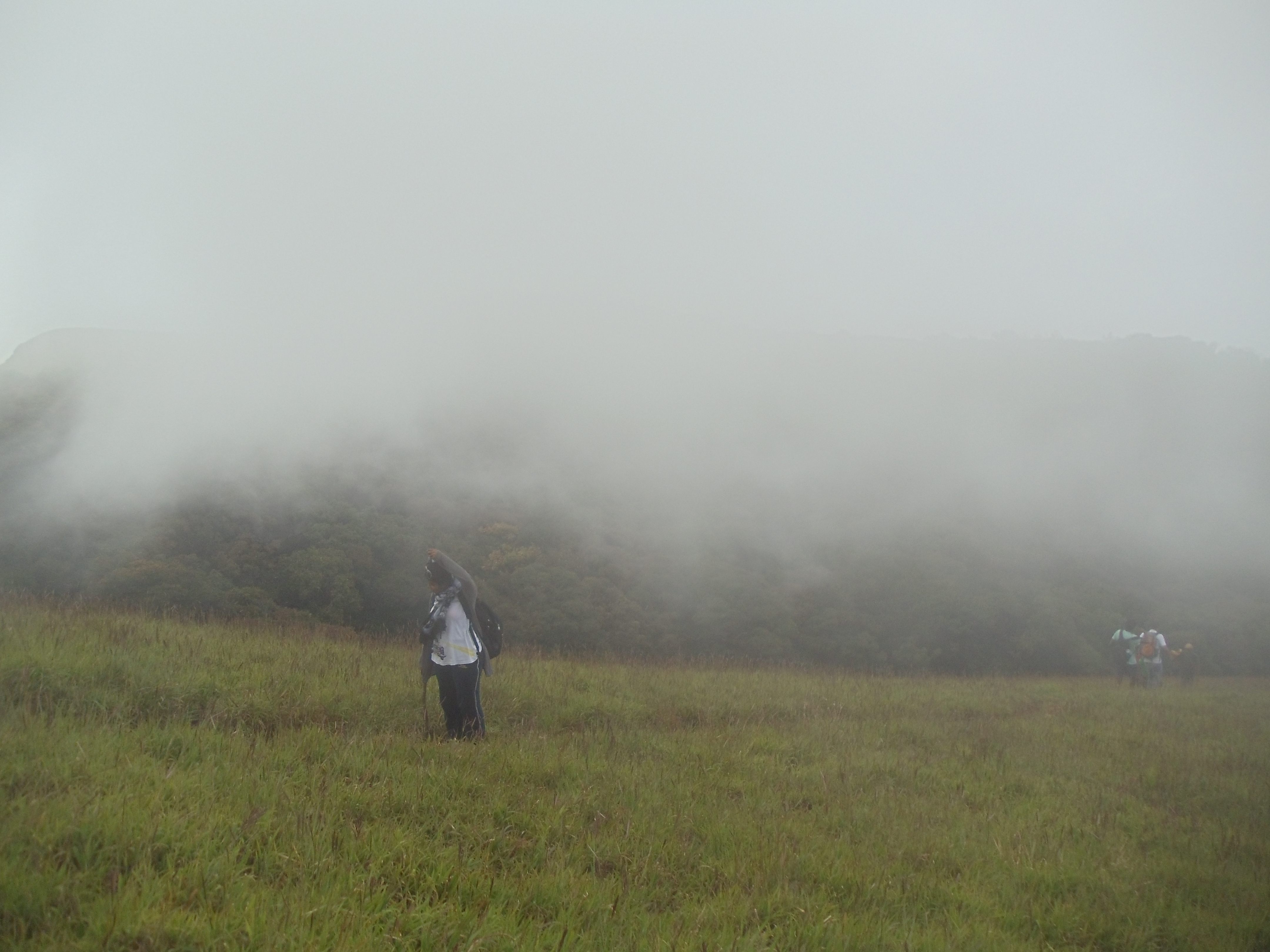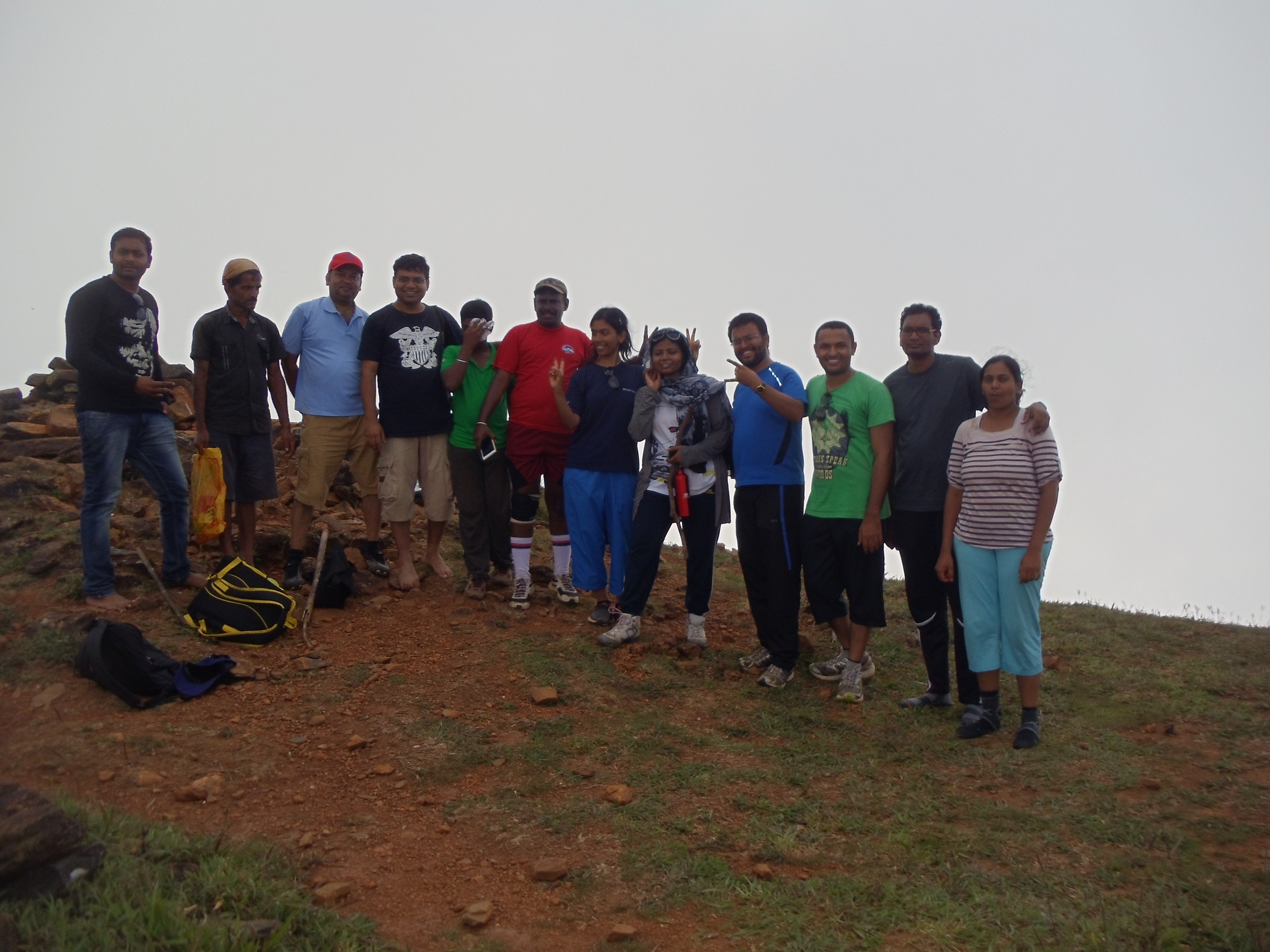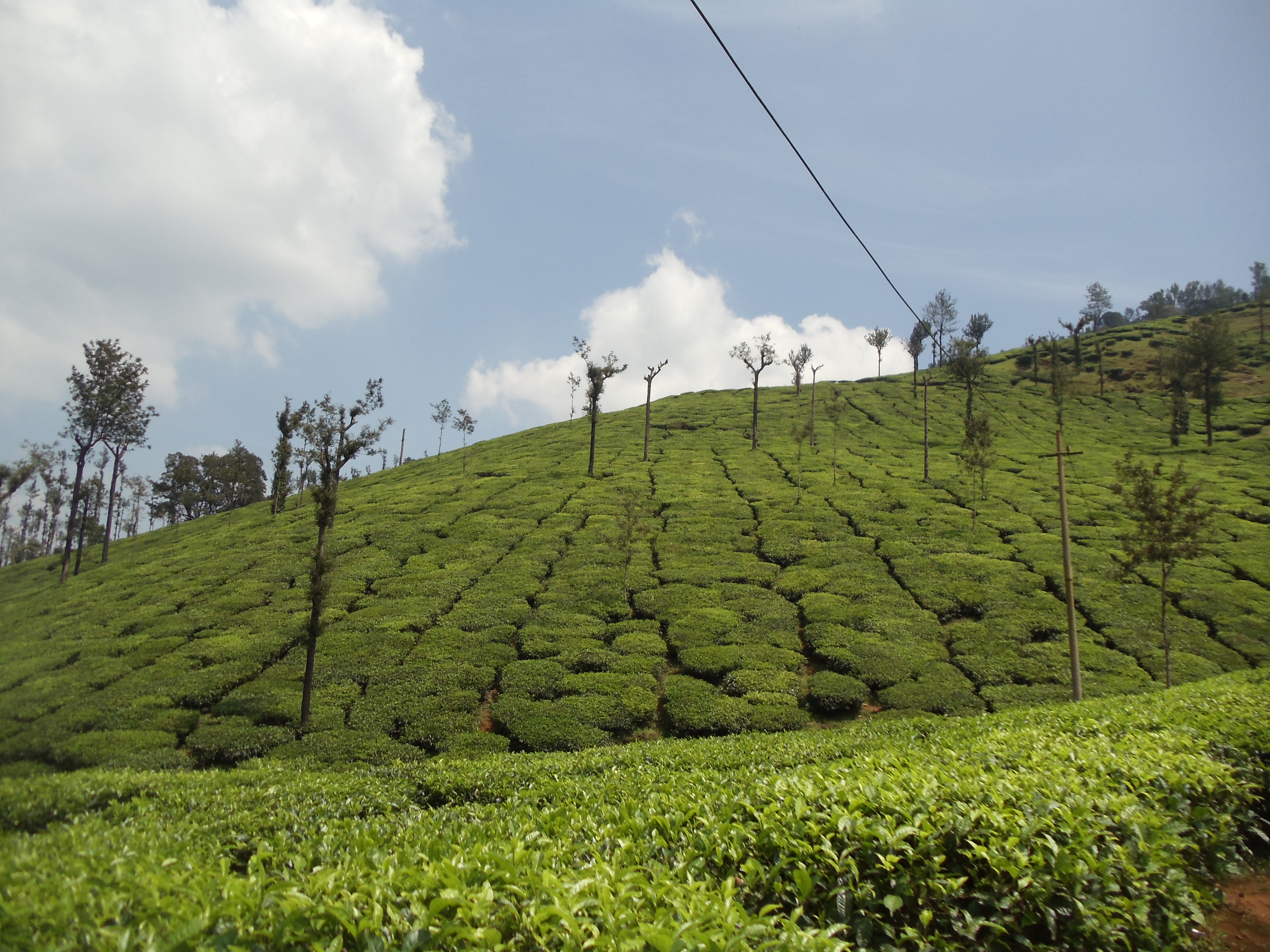Every religion seems to claim that there once was a perfect society where people followed the religion perfectly and hence now they claim to take the current society back to such a perfect society. It is always the initial period of the religion which they claim was perfect but then for some reason people stopped following the religious ‘way of life’ and hence we have the current society with all its evils. However, they never say why a perfect society disintegrated to such an evil society. If a perfect society existed, how is it then that it could not protect itself from disintegrating.
While I look at different religions, my claim is that each perfect society if at all it existed under any religion, disintegrated because of the rigidity imposed by the people following the religion. Any religion makes a certain section of the society very powerful, those who claim to understand the religion, who claim to implement it amongst the general public. If a perfect society existed, then the way it would disintegrate is when such people who became powerful thanks to the rules of the religion used it to their own advantage to keep their position of power, thus polluting the society and the religion.
Here I should add a disclaimer that while making such a claim, I am assuming that a perfect society as governed by the religion existed in a certain past. I ignore the claims made by many that religion itself was created to keep the powerful in their position of power.
Now, if you agree to the premise that the perfect society disintegrated because the powerful people misused it to keep their position of power, then couple of questions definitely arises.
Firstly, if a perfect society existed due to following of religion, then how is it that it could not protect itself from the very own people it made powerful through its rules. Can such a society claim itself to be perfect society that it cannot itself control the people whom it gave the power.
Secondly and more importantly for those who make such a claim of perfect society of the past, what are the rules/dogmas added in the religion by the people in power to keep themselves in power. How do you identify between the true tenets of the religion against the ones inserted by the people to suit their needs? Is not it important to make such a study if you are trying to bring back the concept of perfect society by making use of the religion.
Caste system followed in Hinduism seems to be a perfect example. Now many followers of Hinduism and apologists of caste system, claim that caste system was more based on work rather than by birth. There is no doubt that it is one of the most corrupt system designed to keep the power of the society in hands of only certain sections of people. Can a follower of Hindu religion, claim to have come out of the caste in which he/she was born into. If not, then how can he/she claim to implement the perfect society of the old times without fixing the very basic tenets which corrupted the system.
Category: social
June 29, 2017
What went wrong with the perfect society that once was?
June 2, 2017
Hindi Medium validation of my thoughts
I have always strongly felt about spreading education amongst all children. I am amazed how underrated is the importance of education for a person’s overall growth. For all the issues that are grappling India, there hardly is any noise about giving quality education to our kids, while I believe that needs to be number one priority for any society. Half-hearted attempts and empty promises are what we have been accustomed to. In words of Ravish Kumar, the zero TRP anchor of PrimeTime, NDTV India, ‘Amongst politicians, Education in India just revolves around giving of free books, uniforms or shoes’.
There is hardly any discussion on implementation issues, ideological issues related to education. While everyone wants to emulate USA in every aspect in India, no one talks about their county school system.
In the name of modernizing our education system, what we see in private schools are just different avenues of taking money from parents. It can be swimming pool fees, computer fees, annual festival fees, etc.
Hindi Medium as a commercial movie brings out these aspects very subtly. It brings out the concept of Right to Education Act, something which we are used to only hear as a news item. It also talks about the upper middle class hypocrisy where we would go to any extent to get good education for our own children but hardly talk about government schools where most of the children from poor economic backgrounds study. The film brings attention to the deteriorating condition of government schools. The constant repeating of the concern of the mom that if her child does not get good education, then she will become drug addict keeps telling the audience of the importance of the education for the child at its young age.
Personally for me, the fact that a commercial movie was made around these ideas itself is very heart whelming. Though I had read about the movie before watching it along with my mom in theater, every scene in which the audience including my mom was applauding, laughing or sighing was giving me goosebumps. It was like validating everything that I have had in my mind, something which I have always wanted to work on, make at-least a small impact. Hopefully, we will see some political movement around the issue of education. Its about time we had one.
May 3, 2017
Pepsodent to Patanjali transition of the society
Can you remember the era of toothpastes ad with actors dressed as doctors certifying that they would recommend this or that toothpaste to their patients. Do you remember the claim made by almost every toothpaste that 99% of members of some Dentist’s association has suggested them as the best toothpaste, etc. While the Indian society was changing to be a consumerist society, we accepted any garble from the idiot box and bought the products. From toothpaste to toothbrush, soap to fairness cream, everything was sold based on how much it was marketed and how much it made the buyer have a feel good factor. None of the claims were questioned, it was never verified, just broadcasted on all mediums.
They said the toothpaste had salt, we thought it must be good. They said it had neem, we accepted it. The put logos of all the certifications that product had obtained. What those certifications meant, why it mattered was never asked, never answered. As long as the product had the feel good factor, it was bought. Ask anyone the difference between one or other toothpaste, what mattered was only the offers it had or whether it had some taste or smell which they preferred, nothing to do with how it helped the teeth.
Then comes Patanjali, which also said that their toothpaste also had neem but now with certification of being nationalist, being swadeshi. People accepted it also. They again never questioned anything. While the marketting team of big FMCG companies are trying to understand why people are accepting Patanajali, where as they had themselves trained the society to accept anything with a feel good factor, not with any value in it.
Question still remains as to why do we need a toothpaste, why do we need a soap? What properties should the soap have? While we have never asked this question, we can see how a similar ignorance plagues our politics also.
In 1990s, while we were told to accept globalization as the answer to all our problems, we hailed the ones who were called as the architect of liberalized India, PV Narsimha Rao to Manmohan Singh. Everyone accepted that this was the way forward for the nation to leave the clutches of poverty. A grand vision of development, with roads, flyovers and skyscrapers was shown to everyone. Everyone accepted it, they had known of one or other who had benefitted from it. The cousin abroad, far relative who had a white collared job, industrialists in the town, everyone seemed to be benefiting and there was ‘development’ everywhere. No one was interested in trying to understand the fundamentals of the politics they were propagating. This idea of development made them feel better, brought a hope of a change which was more easy to accept.
Than came the nationalist forces which had been brewing silently in the country side making their base stronger. When they bought forward the same idea of development with nationalist way of implementing it, people have accepted it in the same way they shifted from Pepsodent to Patanjali. After all if the feel good factor is the criteria, all it takes is to show a vision which is more tempting than the current one.
If we accept this analogy, the natural question to ask is what would be the next direction for the society. In case of toothpastes, my guess is that very soon we will have local gurus and babas coming up with their own version of toothpastes. While the nationalist layer peels off from the society, society may well be painted with a layer of regionalism. As the efforts of nationalism fails, it may just be too easy to make the society to blame one region to other as the cause for all its problems. Some of the states already have a very good established regional party which would gladly accept this opportunity. Also the glaring economic divide between the south and the north will also make it possible for people to pass the blame on each other. Close to a decade ago, a friend of mine had suggested that India should get disintegrate into all the different states to solve its problems, I had laughed at him as an absurd idea. I wont be surprised if our political parties use such absurd idea to try their luck to political power.
December 23, 2016
Its time we recognize Netizens as a separate species
Disclaimer: This is just a draft
For long, we have been told that Darwin’s theory of evolution with its main proposal of ‘Survival of the fittest’ does not apply with in a species. That when it comes to with in a species, it is best for the species to work together in a group towards a common survival plan. This has been accepted more or less amongst the academicians for quite some time now.
On the other hand, we now have a scenario amongst humans with the exponential growth of technology in last few decades that access to technology can become one of the prominent factor in distinguishing within the human species. It is no longer the physical transformation within a species which will decide the future of the individual animal within the species. Whether the species has developed an extra thumb or different way of breathing will not decide whether the animal will be able to survive and reproduce. What will decide the future of the individual animal is based on how much access to technology it has.
A farmer in a remote village has much lesser chance of survival. He/she may be able to avoid all the disease using natural medicine but will his/her family survive without artificial insemination for long? That family may survive a flood or a drought, but without proper knowledge and mechanisms, surviving prolonged famines or floods will be very difficult.
A Taxi driver will no longer survive he/she doesnt use technology. He/she needs to accept online payments, take online bookings and also keep himself/herself updated online.
With demonetization in India, the government has virtually left no room for any non technical people to do business or even survive without using technology. You either have to accept payments digitally or refuse to do business with the customer. Similarly you can either know how to book a bus by paying through cards or just have no access to that service since you dont have any cash.
Technology in a way has always been this way. You either knew how to use technical machines or just got removed from the factory floor. As machines increased, the labour force which did not know how to operate them had to be laid off. This is similar to how when nature changed, those who had adapted to the new climate could survive and other had to get extinct. Nature has always been very cold in choosing its best for the future, technology it seems is no different.
November 15, 2016
Leader of the rest 69%
In 2014 elections, we saw BJP become the single largest party with 31% of the vote share and a total of 282 seats out of 543 seats. It was called the Modi wave which was flowing across the nation and helped BJP win in such handsome absolute majority. It is clear that more than Modi wave which definitely was a factor, a lack of any other credible leader to challenge Modi in the opposition was completely missing.
The results of US elections in which Trump with a very small margin has lot of lessons for the Indian opposition to learn. What was completely ignored by the mainstream media was the immense discontent amongst people with current environment of administration and desperate hope of some change which would better their lives. People had no complains as such against Obama but still didnt believe that Hillary would bring the change that they desperately were looking for. It is very doubtful that Trump even understands what changes he has promised but clearly his representation of change and against the established authority was enough for people to give him a chance.
Similarly, in India, there definitely was lot of despair with UPA government and people similarly were desperately looking for change. BJP, riding on the dreamy picture of ‘Gujarat Development’ by Modi in his three terms as CM, was able to sell the idea of change. Again the people did not know what this change was, how it would help them but merely representing a change gave them enough hope to vote for BJP.
The challenge for the opposition now either in India or US is to be able to present a real solution to the people rather than again create another dreamy picture slightly different from the people already bought during the previous election. In case of US, Bernie Sanders seems to have been atleast able to impress a good section of the opposition in his attempt to become the democratic presidential nominee. In India, this is a serious challenge. There does not seem to be any party which can currently present any credible solution and connect with people with its solution.
Rather the opposition in India seem to be completely focused on targeting on wrong policy decisions made by the current government. However,as we saw with Hillary campaign, people are ready to forget the finer details and forgive mistakes generously if they are convinced with the general intention of the government. So, Indians can completely forgive the government for mishandling the Pathanakot terrorist attack as misinformation spread by media. They can ignore the side effects of going to War with Pakistan on economy, on people if they are convinced that this is the only solution left as all other solutions tried ‘previously’ have ‘failed’. Similarly, they are convinced that ‘Industrialists’ need labour reforms to establish industry and generate jobs, even if it means exploiting the workers. They also seem ok with breaking all foreign policies develop over decades together if just some near time gains can be achieved. People are generous to the government as in their eyes the previous governments failed miserably and currently there is no other alternative that is being proposed by anyone credible.
The opposition is not able to use any of its imagination or ideology in countering any of the current decisions apart from attacking current policies in details which people do not seem to even consider. This seems to be a general failure of the world’s largest democracy where the opposition of 69% is not able to produce any credible solution or leader to look up to. Instead by ‘only’ attacking the government and Modi specifically, they are only cementing the views of the government amongst the people.
Unfortunately for the opposition, the task is only uphill as currently it seems the people in the democracies across the world only need quick medication rather than planned and slow changes in the system to put it in the right track. No medication can change the course of society, especially a democratic society in a jiffy and changes in society are only gradual while its destruction can be rapid as we saw during the two world wars.
November 13, 2016
USA with Trump vs India with Modi
If you believe that Trump and Modi are on the two different sides on their stand on racism or minority rights, then probably reading further may not actually be of any interest to you. However, if you do believe that both Modi and Trump capitalized the racist and anti-minority sentiments, fueled it to strengthen their votes during election, then you would also agree that the future of the respective country is very grave. Not only for the minority but also for the majority. Politics of division doesnt stop at one point. It grows with each point, as it is fueled to take power from one set of minority, and completely remove the minority from any power share that democracy provides. So though it may start with majority race against the minority race, or majority religion against the minority religion, it would continue finding more reasons to further subdivide the society on aspects like language, caste, gender, sexual orientation, etc. ensuring that the power continuously gets concentrated with a smaller and smaller community which represents the majoritarian view.
If we agree with this, then we need to look at what would be future of India or US now that such a power is actually in place in both the countries. We do have a good preview of how the majority’s narrative is being implemented in India with continuous ban on various aspects in the name of religion, culture, tradition, etc. Even in US, it is expected to see such ban being implemented, ban on abortion, ban affecting the LGBTQ community, ban on various minority traditions, etc.
However, the rate of implementation of such enforcement of majority view on the minority would determine the extent to which minority community would be effected. In India, due to its diversity, the major challenge with even implementing any majoritarian view is that there isnt a single version of such a view. So while majority community in Northern Cow belt considers Cow a sacred animal, even the majority community in South India and North East India, dont have such a religious attachment to cow. Even the majority community differs so starkly in their culture and tradition that members of community in different regions may not even feel the same connection with each other. The diversity in language, diversity due to the caste system and diversity amongst regions is so different that imposing a single view is not possible. Sangh Parivar in India has been working tirelessly for decades together to reach out to different sections of the majority to spread a common view of the majority community. With such a large dedicated volunteer force on the ground, they still fail to connect to a large number of people with their narrative of the Indian past. The caste system’s rigidity again does not allow for bringing in different castes together against the minority religion.
Apart from this, Sangh Parivar’s goal of a single united medieval-age India, ‘Akhand Bharat’ is still far from any reality and they continue to strive to achieve such a goal. This ensures that Sangh Parivar cannot unleash a complete violent force on the minority as it would immediately alienate a large of its support base which look at it only a cultural organization spread basic tenants of the ‘peaceful’ hindu religion. Hence for Sangh Parivar, the path to their ‘Hindu rashtra’ is a very slow, divisive path continuously poisoning the people’s mind to accept hate against the minority community. They also understand that for such a path, they need to be in power for a long time and hence they would have to continue their rhetoric around of ‘development’ and improve lifestyle of the common people to have his/her support in the long run.
However, on the contrary, in the US, Trump’s support base barely has any organized force behind it. It is a group of people who are genuinely fed up of existing system which has been depriving them of basic life style. This along with the racist and anti-minority feeling developed over time formed a core support for Trump. Now that he is in power, such a support base would definitely feel more empowered. With no direction or guidance behind such a empowered force, there is nothing to stop them from being violent. Hence such a force is definitely going to be much more disastrous for the country. What is awaited in US seems to be a very unpredictable time-bomb which is set during the election campaign when hate was spewed across the nation against particular communities. What would trigger such bombs is what we need to await and see.
I had never thought I would ever say this, but thanks to Sangh Parivar in India, the disastrous force is more like a cancer spreading slowly until it corrodes the whole body and takes over it. But it still can be checked, depending how quickly it gets detected and then treated.
February 6, 2016
Cloaks of activism
Communist, Anarchist, Feminist, Anti-castist, Free Knowledge Hacktivist, Free Speech Advocate, Democrat, Atheist, Anti-racist, LGBT Activist, environmentalist, anti-imperialist and so many other cloaks that a liberal can wear. Ofcourse there are the opposite cloaks for a conservative person also. Amongst so many cloaks, which is the best fit for a person. A person can either have choice of renting one of the cloak for sometime or be forced to choose one of these based on his/her circumstances. Can a boy really wear the cloak of feminism, can he really internalize what a girl has to go through just due to an accident of her being born as a girl? Can an upper-caste really wear the anti-castist cloak without having ever faced with any discrimination or having to be aware of his/her caste identity in a public place? Ofcourse they can rent these cloaks for sometime, lending their voices in support but they can never represent the truly oppressed or shape their movement.
Ambedkar’s commandments to the oppressed, ‘Educate, Agitate, Organize’ represents very well as the direction for the people from the oppressed community. However, for the people from the non-oppressed who would like to support the oppressed and stand with them, in my opinion, the commandment should be to support the leaders from the oppressed rather than taking the role of leader themselves. And this ofcourse is the most challenging aspect for such a person who has always been habituated to lead and direct the decision process.
These lines from the ‘Dalit Marxist Manifesto‘ beautifully present the behaviour of an upper-caste in the dalit movement. “Such attitude is part of growing up upper-caste in India, they just can’t imagine how to look at the world without them being at the center of it, they can’t look at a lower-caste person except from above. Being progressive, radical, revolutionary are not just products of only honest, idealist and painstaking study and analysis of the world but also a resurfacing of the old theme of Higher-hood now denied to them, or they live in denial of, adjusted on a new surface.”
Gandhi and Ambedkar’s tussle in various aspects represents this very well. Gandhi did wear the cloak of being an anti-castist but he could never internalize it and so much that he always gave much more priority to freedom struggle against the Britishers than fighting the caste system within his own society. For Ambedkar, the freedom struggle against Britishers had very little significance as compared to the freedom struggle against the castist society.
This tussle between various cloaks that a liberal wears will always exist. Hence you see the feminist not talking about caste as an issue or even feminist not talking about LGBT rights as much. The environmentalists may talk about Tribal rights but will not talk about farmer suicides. Communists talk about exploitations in work place with their friends in living rooms while asking their wives to prepare food for the comrades.
Ofcourse this does not undermine their contributions to their own activism. Gandhi’s contribution to freedom struggle cannot be challenged and we can only respect him for his sacrifices and appreciate his bravery. This discussion of cloaks is still limited to people who choose to act, where as there are millions who continue to choose to be naked and whose silence allows oppression to be continued. Hence this tussle in whatever way still leads to something better for the society as against doing nothing.
December 30, 2015
Let us not ignore GoogleWebLight, another walled garden in the name of faster web content
Free Basics is evil but let us not ignore GoogleWebLight. It is a new firewall to the internet, one which centralizes the entry to the internet, tries to capture all the data with user privacy completely sacrificed. All this with a sugar coating of fast access to web content.
On the evil side of the digital world, now there are two gaints competing against each other on who can raise to the supreme position of ‘read-everything, know-all’ gaint. The end goal is very simple, understanding the user very personally for successful targeted advertisement. The battle that netizens/hacktivists are fighting against Free Basics from Facebook to protect NetNeutrality has received lot of attention and clearly we will find its results in due course. The battle is intense with Facebook having put gone full force to the extent that it even started attacking the NetNeutrality supporters directly in its full page print media ads about Free Basics.
However, the other gaint has been playing the more silent battle and winning quiet remarkably. Seriously, in terms of capturing the market and looking at the long term goals, Facebook can easily learn some major lessons from Google. Let us look at how an average internet user browses internet in India. There are lot of studies which show that smartphones are the basic device with which majority of internet users in India browse internet. This market is completely captured by the Android Operating System controlled by Google. In this, Chrome and the default Android Browser seem to the major browser that the user uses to browse, again both of which are controlled by Google.
Now since this was not enough, Google has added the feature in Chrome which redirects user to its own site, GoogleWebLight if it detects that the user has a slow internet and then loads the webpage within GoogleWebLight. This it suggests is to improve the speed with which the site is loaded. It naturally tries to remove the Javascript and CSS, may be some heavy images. Whether the site loads faster, maybe debatable, the fact that now Google is now redirecting all the users to its own site, instead of sending the user directly to the site which the user clicked seems completely against privacy of the user, breaks the internet as all the hyperlinks are now modified to redirect user to GoogleWebLight and also kind of acts like a firewall to the internet.
There is no doubt that large section of internet users in India are using internet through a slow connection. Hence there is need for a solution which helps to load the content faster and also such that their data usage is limited. But is redirecting the user to some other site such that the site which user intended to visit is embedded in the new site is definitely not the best design, infact it seems to be a very bad design. One simpler suggestion could just have been using a Chrome browser addons which disables loading of certain type of web elements when loading a site on the browser. Another way could have been developing a standard which encourages website developers to also have a site for slow internet users.
From the perspective of a website developer, GoogleWebLight is evil because now I have no idea how my website will be shown to the user. It seems you can add a meta tag to disable loading of the site through GoogleWebLight but then Chrome shows a warning to the user that ‘This page is slow to load’ or something to that effect. Definitely not something which I want my user to see while waiting for my page to load.
Overall, it is important for us to be careful on how GoogleWebLight evolves and as hacktivists, we need to come up with better ways to ensure that people with slow internet connection get better experience browsing internet.
December 21, 2015
Gandhi, law and emotions
Two strand of thoughts have been in my mind for last one week. One is the popular news about the juvenile who raped Jyoti Singh (Nirbhaya) who is being released after completing three years in jail as what is prescribed by the law. The second thought was about more than half a century ago, the hanging of Nathuram Godse.
In the first case, as always, I had opinion opposite to most people who were thirsty for blood, who wanted him to be jailed for more time, probably forever. Their simple case was that it was dangerous to release him. Why? What exactly did he do on that day of incident? How exactly had he been for last 3 years? All this did not matter. They wanted blood and this was an easy case. For me personally it was never about the boy. I dont know his name or anything much about him. What mattered to me more was the kind of society that we were developing where 17 year old boys were becoming rapists. What led him to that path? In some news channel, I heard that the boy was on roads for 7 years away from his home, that means right at age of 10, he had been working, doing odd jobs.
I am not sure what exactly made me think of the Nathuram Godse’s hanging. But I kept thinking of how we had let down Gandhi by hanging his assassin. Wouldnt he himself suggested not to harm him had Gandhi been alive? This seemed to be first incident where we could make use of Gandhi’s teaching without his presence and we as a nation, just chose to ignore it. Now, more than 65 years of his death, no doubt that we have been making a mockery of all his teachings. This line of thought stayed with me for sometime.
But when I was thinking of the case of juvenile’s release along with Godse’s hanging, there seemed to two contradictory line of thoughts. In case of the juvenile’s release, I was looking at it from rule of law perspective and how since he had spent the stipulated time as per law, he had all rights to be released. However, in case of Godse’s hanging, I was looking at it from Gandhi’s perspective. However, when we look at rule of law, then in case of Godse, he did have to present his case in front of a court which then gave the judgement that he should be hanged till death.
So even if Gandhi would have been alive, there would have been no reason to not hang Godse, as that was the law at that time. Ofcourse, would Gandhi have intervened to make amendments to law such that death sentence would be abolished? I dont know. One of the popular reason, lot of left leaning intellectuals do not like Gandhi as much is because of the role he played in case of Bhagat Singh, hanging. Many believe that had Gandhi taken the issue up with the British government as a priority and asserted pressure, they could have been forced to release him or atleast not hang him and maybe give him life imprisonment.
October 20, 2015
Trek to beautiful grasslands of Kudremukh
After looking at the beautiful images of hills with stretches of grasslands, I always wanted to trek to Kudremukh. Me, Farrah and her colleague, Janaki booked our seats through TripHippie which had a fixed departure available for Oct 17th-18th weekend for Rs. 3500/- per person. The organizer of the trek was Nature Admire, which is run by Dev Balaji. I had met him couple of days before to talk about collaboration between TripHippie and Nature Admire. He has a vast experience and network in this domain and there is lot to learn for us from him. After booking through TripHippie, we received the detailed itinerary from Dev. We left for Kudremukh from Bangalore on Friday night around 10:00 pm in a tempo traveller. We reached Balegal by morning 7:00 am on Saturday. From here, we went to Mullodi in Jeep ride of 8 kms that I will never forget. It was only in videos that I had seen driving in such roads but this route will ensure that all the bones in your body is shook. The drivers here are skilful and had full control over the vehicle during the drive. After reaching the base camp at around 8:00 am, we quickly freshened ourselves and had breakfast. We then packed food items that we had brought from Bangalore along with lunch that was provided to us to carry along with other necessary items like torch, sprays and water bottles. Though as per the itinerary, we were supposed to be back to base camp by 6:00 pm and hence torch would not have been necessary, it later proved to be very helpful. With this, by 9:00 am, we were all set to start the trek.
We were quickly briefed by Balaji about the trek and do’s and don’ts during the trek. We had a local guide with us, who would lead the way for our group. There were more than 100 other trekkers who had come along with various other groups, so the trek route was crowded. The trek is 8 kms to the peak, with close to 4 kms of trek where you have steep climbing which is very tiring. However there are lot of places where you cross the streams with water so pure that you can just drink it directly. Again this was a first experience for me to just drink water directly from the stream.
It was very sunny and we were soon tired even just after 1 km of trekking. Balaji kept inspiring us that we will soon get comfortable once we get acclimatized to the new environment. Till now, we hadnt seen the actual peak that we had to reach. After around 1.5 kms of trek, Balaji showed us the Kudremukh Peak.
Kudremukh in Kannada means horse-face. Though a little difficult for me to imagine, others seem to get it easily imagine the peak as a horse face. The sight of the peak kept inspiring us apart from the sight of lush green grasslands. We were expecting rain and hence wanted to complete the trek before evening after which it would be really difficult to trek back if it rains. The local guide kept trekking easily and waiting for us to catch up with him. Our trekking team had people with varied experience with us being the complete newbies and a couple who had even visited Annapurna Base camp in Nepal. So they kept guiding us and helping us. Balaji kept reminding us to take some short breaks and have bananas, nuts and chocolates that we had brought along with us.
By around 1:00 pm, we were completely exhausted with close to 2 kms still to go. We had maintained a constant pace of 25-30 mins per km. Balaji stayed at the end encouraging us to keep moving forward. Looking back at the distance we had covered also kept pushing to achieve the final 2 kms to reach the peak. Also, the cloud had started becoming more dense and we expecting rain, we kept moving forward. By this time, a part of our group had already gone quite ahead.
The last 500m is almost plain and we were thrilled for having reached the peak. We were amidst the clouds and it was a great feeling of achievement and satisfaction.
We finally reached the peak at 2:00 pm after 5 and half hours of trek where others from our group were already waiting for us and taking rest.
We had the puliogre that we had got from base camp as lunch along with some oranges that we had carried from Bangalore. We also took a small nap of 10 mins to rest our legs. We then started our downhill trek at around 3:00 pm. Though we had expected it to be difficult due to some steep paths, we soon understood it was much easier to have climbed than to go down. Our joints and toes soon started to feel the pressure. We had thought that though difficult, we would still be faster in climbing downhill and hence would reach the base camp by around 7:00 pm with 4 hours to trek downhill. However one of our group mates sprained her leg very soon, just about 2 kms from the peak and it slowed us down. By around 6, were still at least 5 kms far from the base camp and it was already getting dark. This was where the torches that we had carried along helped us and we continued trekking downhill with the help of torch light. We had Balaji who had waited for us before the start of the dense forest. We would have definitely got lost had he not waited for us there. He kept assuring us that we keep moving slowly and carefully. We did not want anyone else to get hurt by twisting or falling. The steam which had been very welcoming while climbing up were now numbing cold. We still had to cross them and since we did not want to risk slipping on stones, we decided to walk through the numbing cold stream. It was our first experience trekking in evening through a dark forest and we were all scared except for Balaji who knew the route very well.
By around 9:00 pm, completely exhausted, we reached the basecamp and joined other members from our group. The dinner was ready along with the tents and sleeping bags for our night stay. Completely refreshed with the experience of the trek, we enjoyed the dinner and went to sleep in the cosy.
The next day, Sunday, we got up at around 9(we were supposed to get up by 6 :)) and visited the Somavathi falls. Since we were already late, we just enjoyed in the falls for an hour or so and rushed back to basecamp to pack our bags. Since most of us were exhausted from the trek, we had decided to go back to Balegal in a Jeep rather than trek back to Balegal which was the plan as per the itinerary. We also decided to skip visiting the Horanadu Temple and just stop at the Tea Estate for a while.
After this, we reached Kottigehara where we stopped for lunch. We enjoyed the Neer dosa being served there in a local hotel. Though we were expecting our body to ache due to the heavy trekking that we had done the previous day, surprisingly we did not have any such issues. Relieved we enjoyed the movies that was being played in the cab. We reached back to Bangalore at around 8:30 and as always were welcome with a huge traffic at Malleshwaram Maramma Circle. From the crystal clear water from streams and grasslands surrounding us, we were now back amidst the concrete structures of Bangalore.
Overall the trek to Kudremukh was a great experience and my first through TripHippie. I notice close to 150 more packages that are currently hosted in TripHippie which I need to experience.

